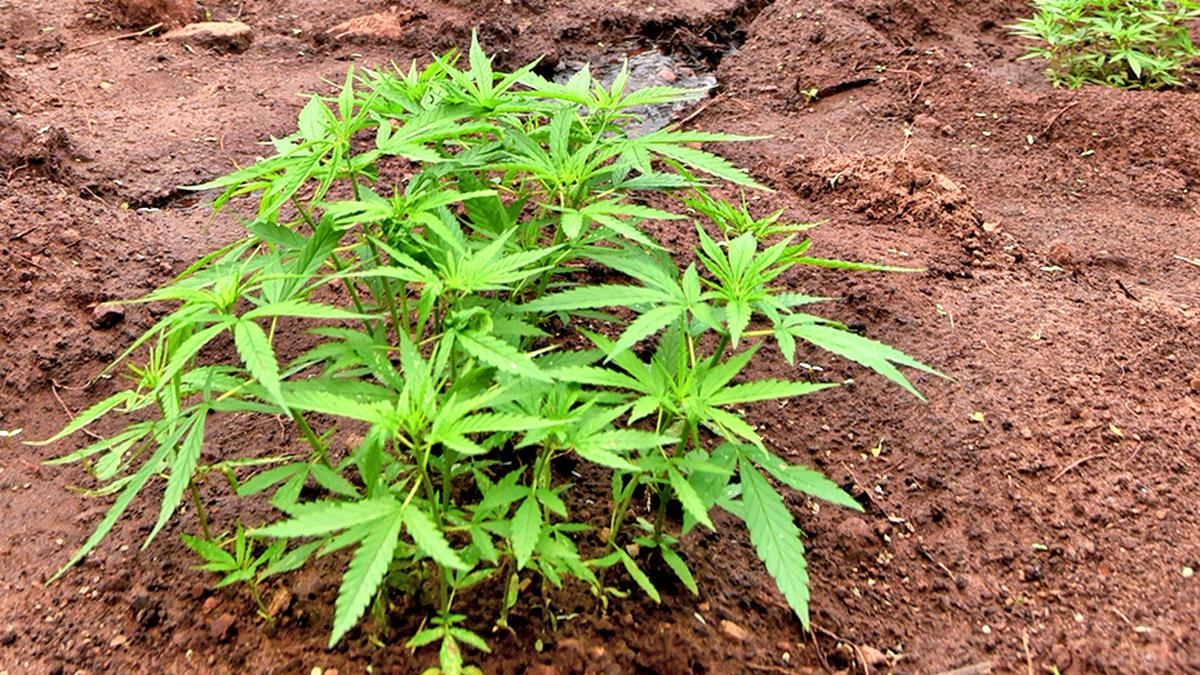
Himachal Pradesh inches closer to cannabis cultivation
The Hindu
With the Himachal Pradesh government inching closer to legalise cannabis (hemp) cultivation in the State, growers are upbeat and optimist about getting an economic boost, even as the concerns and its multiple effects on society cannot be ignored
With the Himachal Pradesh government inching closer to legalise cannabis (hemp) cultivation in the State, growers are upbeat and optimist about getting an economic boost, even as the concerns and its multiple effects on society cannot be ignored, including allurement among adolescents and youth towards the use-abuse of cannabis, the nexus between illegal producers and suppliers of cannabis getting stronger, the risk of pilferage, the occurrence of amotivational syndrome among others.
, A committee comprising lawmakers that explored the possibility of legal cultivation of cannabis has recently recommended cultivation of ‘non-narcotic use of cannabis for medicinal, industrial, and scientific use’.
Hemp is a botanical class of Cannabis sativa cultivars grown specifically for industrial or medicinal use. It is produced in parts of Himachal Pradesh though it is illegal under the Narcotic Drugs and Psychotropic Substances (NDPS) Act, 1985.
An approval from the State Cabinet is awaited after which a policy is expected to be framed soon by the State government on cannabis cultivation keeping in view the provisions of NDPS Act, 1985, and NDPS Rules, 1989.
Even as there has been a growing concern surrounding the drug menace, State Revenue Minister Jagat Singh Negi, who headed the five-member committee, asserts that the government is committed to curbing it and that while steps are being taken in this regard, the cultivation of cannabis will be limited to only industrial, medicinal and scientific use. The policy on hemp cultivation for medicinal, industrial, and scientific would pave the way for utilising the medicinal properties of cannabis to treat patients, besides raising revenue for the State from the products made of hemp, according to the Minister. Also, allowing cannabis cultivation would reaffirm the government’s commitment to safeguarding the interests of the farmers, who have been long demanding to lift the ban on cultivation.
The NDPS Act of 1985, imposes a ban on extracting the resin and flowers from the cannabis plant, but the law determines the method and extent of its cultivation for medicinal and scientific purposes. Section 10 (a) (iii) of the Act empowers the States to make rules regarding the cultivation of any cannabis plant, production, possession, transport, consumption, use and purchase and sale, and consumption of cannabis (except charas). States are empowered to permit, by general or special order, the cultivation of hemp only for obtaining fiber or seeds or for horticultural purposes. In 2017, Himachal Pradesh’s neighbour Uttarakhand became the first State in the country to legalise cannabis cultivation. Besides, controlled cultivation is also being done in some districts of Gujarat, Madhya Pradesh and Uttar Pradesh.
Ranjit Singh Ghuman, currently a professor of eminence (economics) at Guru Nanak Dev University in Punjab’s Amritsar, recently headed a study titled ‘Dynamics of Drug Addiction and Abuse in North West India: Social, Economic and Political Implications’ commissioned by the Indian Council of Social Science Research and completed at the Centre for Research in Rural and Industrial Development. This study points out that approximately 95% drug addicts in Himachal Pradesh are using cannabis and its by-products such as marijuana, hashish, charas and ganja/hemp, etc.

Under the Ganitha Kalika Andolana (GKA) initiative, a maths learning movement supported by the Government of Karnataka, In 2024-25, the Gram Panchayat level Maths Contests were conducted across 28 districts in Karnataka. Around 5,95,517 children from 26,188 schools in 4,890 Gram Panchayats were assessed in about 30 days to address the gaps in numeracy levels of children studying in government schools.

Controversies surrounding BIFFes did not affect the festival’s spirit, as people beat the scorching heat to watch films from different parts of the world. As is the trend every year, senior citizens and college-goers attended the festival in the majority as BIFFes witnessed a slight increase in footfall this year, compared with the previous edition. During the closing ceremony of the 16th edition of BIFFes, organisers, led by Karnataka Chalanachitra Academy chairman Sadhu Kokila, gleefully mentioned the massive turnout on the final day.











